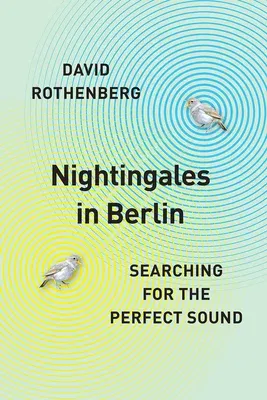A celebrated figure in myth, song, and story, the nightingale has
captivated the imagination for millennia, its complex song evoking a
prism of human emotions, --from melancholy to joy, from the fear of
death to the immortality of art.
But have you ever listened closely to a nightingale's song? It's a
strange and unsettling sort of composition--an eclectic assortment of
chirps, whirs, trills, clicks, whistles, twitters, and gurgles. At times
it is mellifluous, at others downright guttural. It is a rhythmic
assault, always eluding capture. What happens if you decide to join
in?
As philosopher and musician David Rothenberg shows in this searching and
personal new book, the nightingale's song is so peculiar in part because
it reflects our own cacophony back at us. As vocal learners,
nightingales acquire their music through the world around them, singing
amidst the sounds of humanity in all its contradictions of noise and
beauty, hard machinery and soft melody. Rather than try to capture a
sound not made for us to understand, Rothenberg seeks these musical
creatures out, clarinet in tow, and makes a new sound with them. He
takes us to the urban landscape of Berlin--longtime home to nightingale
colonies where the birds sing ever louder in order to be heard--and
invites us to listen in on their remarkable collaboration as birds and
instruments riff off of each other's sounds. Through dialogue, travel
records, sonograms, tours of Berlin's city parks, and musings on the
place animal music occupies in our collective imagination, Rothenberg
takes us on a quest for a new sonic alchemy, a music impossible for any
one species to make alone. In the tradition of The Hidden Life of
Trees and The Invention of Nature, Rothenberg has written a
provocative and accessible book to attune us ever closer to the natural
environment around us.

